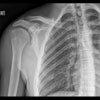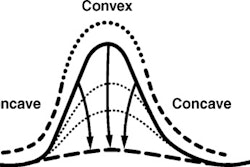CHICAGO - German researchers reported that use of the nutritional supplement selenium in women who are diagnosed with gynecological cancers does not appear to compromise the effectiveness of radiation therapy. The findings could be good news for patients taking selenium for its antioxidant properties.
"Overall survival rates show that supplementation of selenium does not interfere with the positive biological effects of ionizing radiation," said Dr. Ralph Muecke, a radiologist in private practice at St. Josef's Hospital in Wiesbaden, in a presentation on Saturday at the American Society of Clinical Oncology (ASCO) meeting.
In the study, radiotherapy was delivered with a 6-18 MV linear accelerator. Five fractions a week were planned. Doses ranged from 45 to 50 Gy in fractions of 1.8 to 2.0 Gy. Treatment was given with a four-field box technique.
Patients were given 500 mcg of selenium on days when radiotherapy was performed, and they took 300 mcg of selenium when radiation treatments were not planned.
Muecke said that over a 51-month follow-up, three of the 39 patients receiving selenium supplements died, compared with six deaths among the 42 patients not receiving the supplements.
"The mortality difference was not significant," he said at his poster presentation. "However, what these mortality data show is that it is unlikely that selenium supplementation is causing any harm to the patients or [is] diminishing the impact of radiotherapy."
The group found an interesting side benefit to selenium: Eight cases of diarrhea were reported among the women on selenium, compared with 18 events in those who were not assigned to receive selenium, Muecke said. That difference was statistically significant (p = 0.044).
"Selenium is one of the supplements out there that is being used by our patients because they believe it may be helpful in treating or preventing cancer," said Dr. Leonard Lichtenfeld, deputy chief medical officer of the American Cancer Society in Atlanta. "This study seems to show evidence that selenium may have some value in protecting patients against radiation-induced diarrhea, but larger studies must be undertaken before we can make recommendations about using selenium as a protective agent," he said.
Lichtenfeld advised physicians to discuss with their patients the use of vitamin supplements during cancer treatment. He added that supplements should not be considered safe simply because they are "natural."
By Edward Susman
AuntMinnie.com contributing writer
June 2, 2008
Related Reading
ASCO news: Funding shortfall closes NCI imaging programs, June 1, 2008
Copyright © 2008 AuntMinnie.com

















